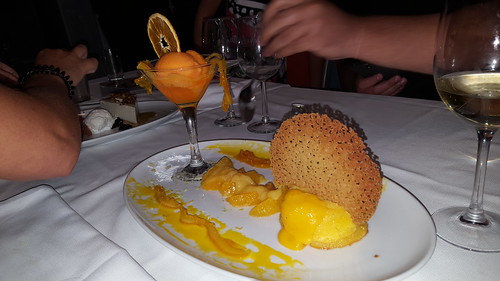Ing their consideration of ethics in practice. Throughout introductory and sophisticated
Ing their consideration of ethics in practice. During introductory and sophisticated pharmacy GW 501516 site practice experiences, educators progressively relinquish authority over students’ learning experiences, encouraging inquiries from and sharing the role in the “drug information expert” with students. These experiences promote the improvement of expertise and attitudes associated with self-authorship, which MedChemExpress Cobicistat includes essential thinking, independent finding out, and professional collaboration.Also, students create their skilled identity, against which they can consider the perspectives of other folks, allowing them to embrace and value diversity and create mature relationships with colleagues and patients. The pedagogy of self-authorship, described within the model, balances challenge with help, and combines cognitive and affective improvement, giving a holistic strategy to pharmacy education. Utilizing this framework, pharmacy educators could create or refine finding out experiences to meet the criteria with the model and market self-authorship. As outlined by the  model, understanding experiences that market
model, understanding experiences that market  self-authorship must validate learners as knowers, providing them self-assurance in their potential to construct information.5 Pharmacy educators usually contain students in their scholarly function. As they participate in research and scholarship, students explore the process of essential inquiry and make self-assurance in their capability to produce new understanding. Service-learning, health fairs, along with other public speaking or patient counseling experiences place students inside the function from the expert or educator, which may possibly also serve to develop their confidence in their capacity to understand. Additionally, the LPM demands learning experiences to situate mastering within the learner’s personal practical experience, permitting students to bring their perspective and identity into the learning.5 Experiential instruction engages students in reallife situations, and reflection on those experiences might support students create insights into how their experiences shape their perspective and identity, therefore advertising selfauthorship. Ultimately, the LPM defines finding out as mutuallyAmerican Journal of Pharmaceutical Education 2013; 77 (four) Post 69.constructing which means, enabling students to perform collaboratively to exchange perspectives and socially construct know-how with their peers.5 Numerous colleges and schools of pharmacy have explored team-based finding out and also other group-learning techniques that let students to direct their very own learning experiences. ACPE encourages the usage of innovative instructional procedures that “enable students to transition from dependent to active, self-directed, lifelong learners.”1 The theory of self-authorship adds a foundational understanding with the developmental approach students undergo inside the transition away from absolute understanding and dependence on understanding passed from PubMed ID:http://www.ncbi.nlm.nih.gov/pubmed/19892828,18055500,15608241 authority figures. The model, according to the theory of self-authorship, describes a student-centered approach to pharmacy education that promotes the development of self-authorship. Self-authored students are capable of active understanding building, mature adult decision-making, interdependent relationships with other individuals, and productive citizenship.two,7 By using the theory of self-authorship and also the pedagogy from the LPM, pharmacy educators may very well be in a position to accelerate their achievement of ACPE’s broad educational targets of contextual know-how, specialist identity, and collaborative relationships.
self-authorship must validate learners as knowers, providing them self-assurance in their potential to construct information.5 Pharmacy educators usually contain students in their scholarly function. As they participate in research and scholarship, students explore the process of essential inquiry and make self-assurance in their capability to produce new understanding. Service-learning, health fairs, along with other public speaking or patient counseling experiences place students inside the function from the expert or educator, which may possibly also serve to develop their confidence in their capacity to understand. Additionally, the LPM demands learning experiences to situate mastering within the learner’s personal practical experience, permitting students to bring their perspective and identity into the learning.5 Experiential instruction engages students in reallife situations, and reflection on those experiences might support students create insights into how their experiences shape their perspective and identity, therefore advertising selfauthorship. Ultimately, the LPM defines finding out as mutuallyAmerican Journal of Pharmaceutical Education 2013; 77 (four) Post 69.constructing which means, enabling students to perform collaboratively to exchange perspectives and socially construct know-how with their peers.5 Numerous colleges and schools of pharmacy have explored team-based finding out and also other group-learning techniques that let students to direct their very own learning experiences. ACPE encourages the usage of innovative instructional procedures that “enable students to transition from dependent to active, self-directed, lifelong learners.”1 The theory of self-authorship adds a foundational understanding with the developmental approach students undergo inside the transition away from absolute understanding and dependence on understanding passed from PubMed ID:http://www.ncbi.nlm.nih.gov/pubmed/19892828,18055500,15608241 authority figures. The model, according to the theory of self-authorship, describes a student-centered approach to pharmacy education that promotes the development of self-authorship. Self-authored students are capable of active understanding building, mature adult decision-making, interdependent relationships with other individuals, and productive citizenship.two,7 By using the theory of self-authorship and also the pedagogy from the LPM, pharmacy educators may very well be in a position to accelerate their achievement of ACPE’s broad educational targets of contextual know-how, specialist identity, and collaborative relationships.
Analysis AND PRACTICEGiving to Other folks plus the Assoc.Ing their consideration of ethics in practice. For the duration of introductory and sophisticated pharmacy practice experiences, educators progressively relinquish authority more than students’ finding out experiences, encouraging queries from and sharing the function with the “drug information expert” with students. These experiences market the improvement of capabilities and attitudes connected with self-authorship, like essential thinking, independent finding out, and expert collaboration.In addition, students create their specialist identity, against which they can take into consideration the perspectives of other individuals, enabling them to embrace and value diversity and create mature relationships with colleagues and sufferers. The pedagogy of self-authorship, described within the model, balances challenge with assistance, and combines cognitive and affective development, supplying a holistic method to pharmacy education. Using this framework, pharmacy educators could develop or refine mastering experiences to meet the criteria in the model and market self-authorship. According to the model, mastering experiences that market self-authorship have to validate learners as knowers, providing them self-assurance in their capability to construct knowledge.5 Pharmacy educators usually consist of students in their scholarly perform. As they take part in investigation and scholarship, students explore the procedure of vital inquiry and make self-confidence in their ability to produce new knowledge. Service-learning, health fairs, along with other public speaking or patient counseling experiences spot students within the role of the expert or educator, which may also serve to build their self-assurance in their capacity to study. Furthermore, the LPM calls for finding out experiences to situate mastering in the learner’s own practical experience, permitting students to bring their point of view and identity in to the studying.5 Experiential education engages students in reallife circumstances, and reflection on those experiences may perhaps assist students develop insights into how their experiences shape their perspective and identity, thus advertising selfauthorship. Lastly, the LPM defines learning as mutuallyAmerican Journal of Pharmaceutical Education 2013; 77 (four) Report 69.constructing meaning, enabling students to work collaboratively to exchange perspectives and socially construct expertise with their peers.five Several colleges and schools of pharmacy have explored team-based learning and other group-learning tactics that permit students to direct their own finding out experiences. ACPE encourages the use of revolutionary instructional procedures that “enable students to transition from dependent to active, self-directed, lifelong learners.”1 The theory of self-authorship adds a foundational understanding on the developmental course of action students undergo inside the transition away from absolute understanding and dependence on expertise passed from PubMed ID:http://www.ncbi.nlm.nih.gov/pubmed/19892828,18055500,15608241 authority figures. The model, depending on the theory of self-authorship, describes a student-centered strategy to pharmacy education that promotes the improvement of self-authorship. Self-authored students are capable of active know-how construction, mature adult decision-making, interdependent relationships with other folks, and effective citizenship.two,7 By utilizing the theory of self-authorship along with the pedagogy on the LPM, pharmacy educators might be in a position to accelerate their achievement of ACPE’s broad educational objectives of contextual understanding, skilled identity, and collaborative relationships.
Research AND PRACTICEGiving to Others and the Assoc.